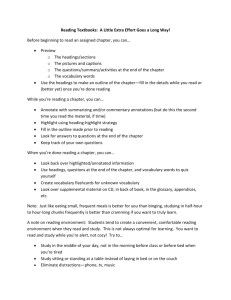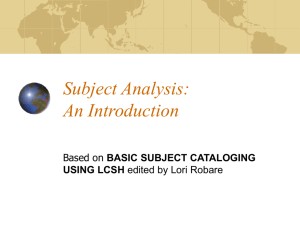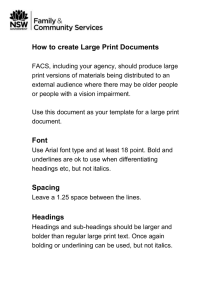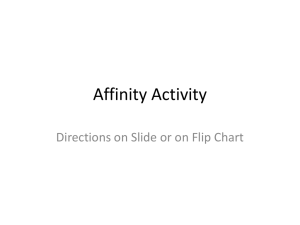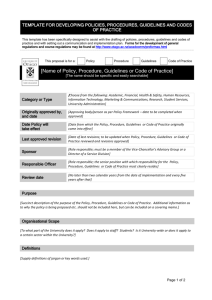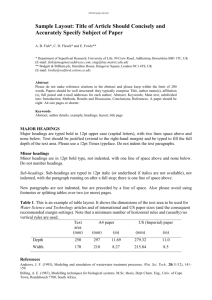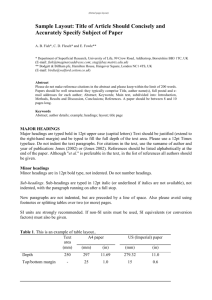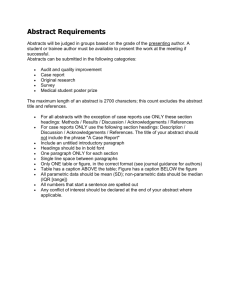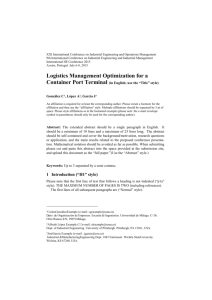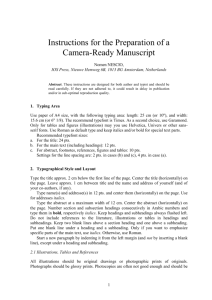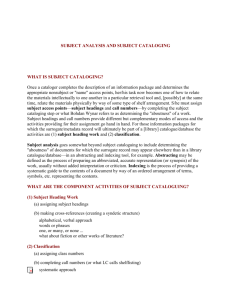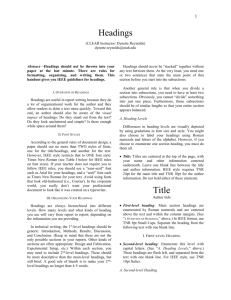Searching Academic Search Complete like a pro
advertisement
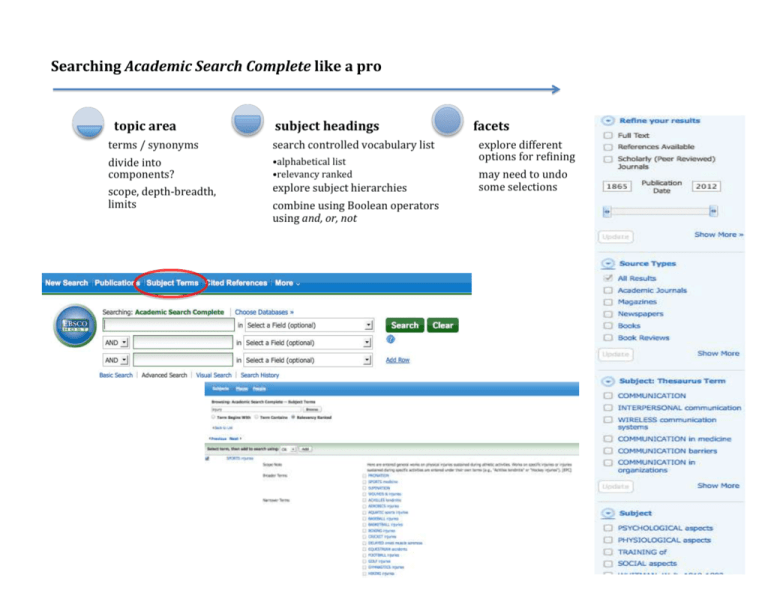
Searching Academic Search Complete like a pro Concept Classification scheme Definition A method of organization according to a set of pre-established principles, usually characterized by a notation system and a hierarchical structure of relationships among the entities. Notes Examples: DDC (Dewey Decimal Classification in K12 & public libraries); LC (Library of Congress Classification used in academic libraries) SN (scope note): note following a term explaining its coverage, specialized usage, or rules for assigning it. A relationship between or among terms in a controlled vocabulary that depicts broader (generic) to narrower (specific) or whole-part relationships; begins with the words broader term (BT), or narrower term (NT). Example: Hierarchical scheme RT (related term): term that is associatively but not hierarchically linked to another term 1.1. Transportation 1.1.1.Water transportation Shipping 1.1.1.1.1. Controlled vocabulary Subject heading Metadata Facets BT (broader term): identifies more broad /generic terms or categories NT (narrower term): identifies more specific terms or sub-categories 1. Social sciences 1.1.1.1. UF (used for): list of synonyms and alternative spellings Ocean shipping Jeans BT Pants NT Levis NT Wranglers UF Dungarees UF Waist Overalls RT Denim RT Overalls A standard system of terminology used for coding, classifying, or otherwise uniquely identifying data and information. A word or phrase, or any combination of words, phrases, and modifiers used to describe the topic of a content object. Data about data Data that describe the attributes of a resource, characterize its relationships, support its discovery, management, and effective use, and exist in an electronic environment A type of metadata that may be applied to resources as an alternative to hierarchical classification Examples: format (text, image, sound, etc.), availability and location, topics/subjects, etc. Information need scenario #1 For your communications class you need to find information and research about how and why people reveal (or don’t reveal) information about themselves in Facebook. You may use both scholarly and non-scholarly sources but you will need to cite at least two scholarly articles in your paper. Steps Topic terms, components, and scope What subject headings seem appropriate in the database? Are you selecting a broad subject heading or narrowing down to very specific headings and sub-headings? What seems to work best? Try combining the subject headings in a few different pairs. What sort of results do you get? Try refining the search results using one or more facets How many articles look useful? What are the best two articles you find? Why are they the best? List the terms and search actions you try Information need scenario #2 For your sports psychology class you want to write a paper on different techniques or strategies that may help motivate athletes and prevent burnout. You may opt to focus on a particular sport or exercise in general. You may use both scholarly and non-scholarly sources but you will need to cite at least two scholarly articles in your paper. Steps Topic terms, components, and scope What subject headings seem appropriate in the database? Are you selecting a broad subject heading or narrowing down to very specific headings and sub-headings? What seems to work best? Try combining the subject headings in a few different pairs. What sort of results do you get? Try refining the search results using one or more facets How many articles look useful? What are the best two articles you find? Why are they the best? List the terms and search actions you try
